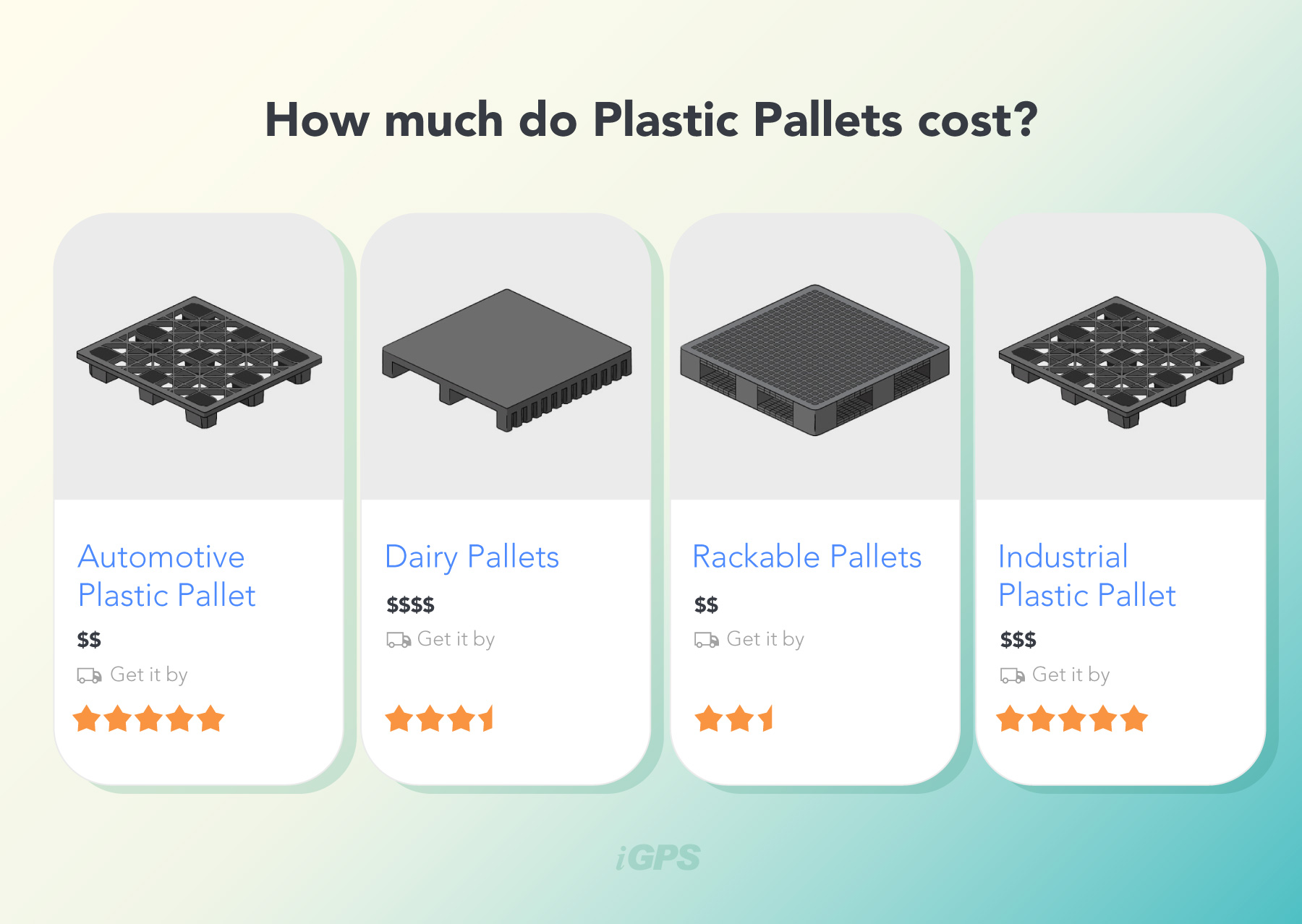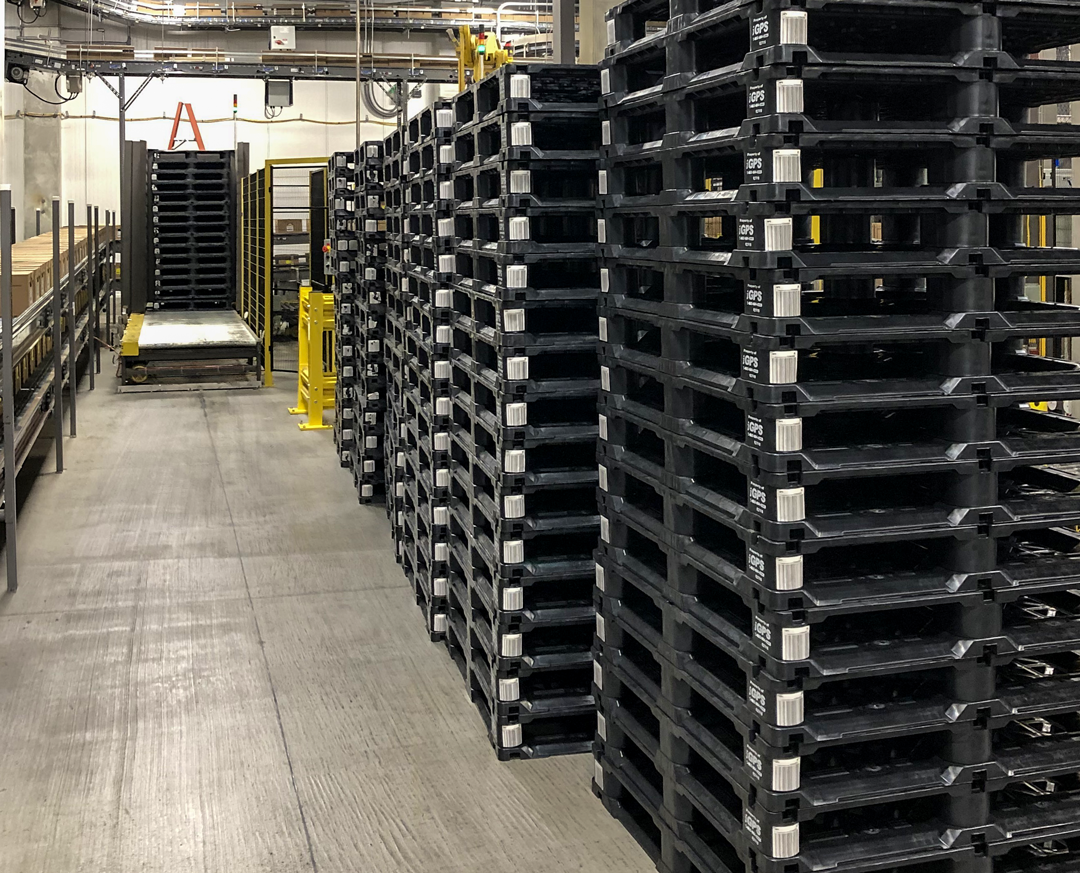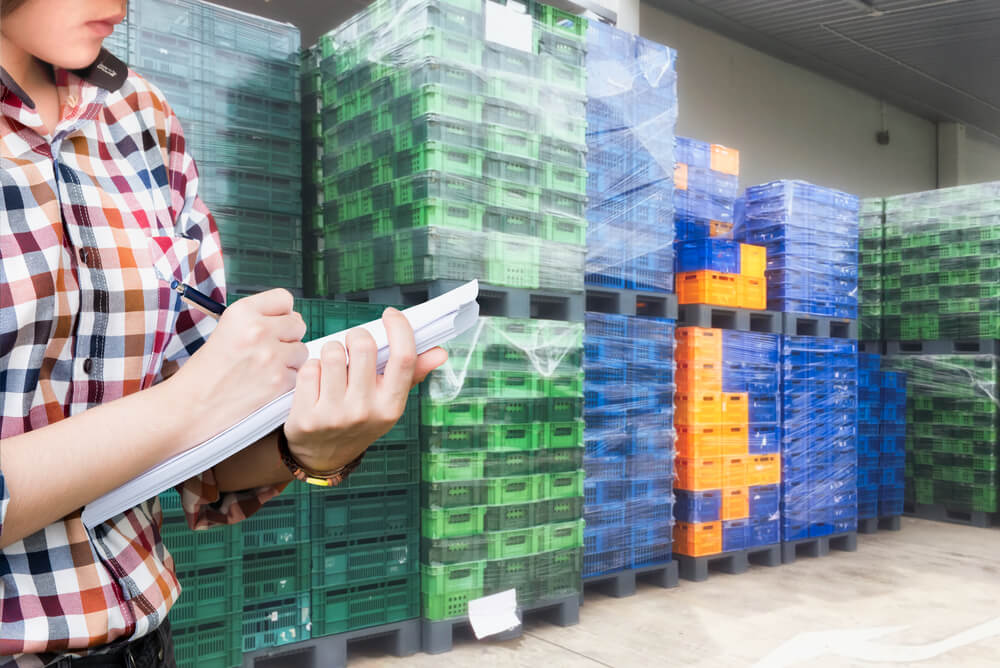It’s not just your eyes playing tricks on you or your imagination running wild: you really seeing more plastic pallets stacked on the floors of shopping warehouses like Costco, a shift that seems to have happened overnight as the cost of and competition for lumber has never been fiercer.
In fact, in an email to Supply Chain Dive, the United Fresh Produce Association noted that the rising cost of lumber during the peak of the pandemic caused the price of wooden pallets to balloon by 400%. Although lumber prices have not remained this high, they have not returned to pre-pandemic levels.
Aside from being more environmentally friendly and cost-effective than wood-block pallets, what is it about plastic pallets that are contributing to their rising popularity?

How Much Does a Plastic Pallet Cost?
Plastic pallets cost between $10-$120 apiece, depending on their simplicity
Businesses generally use plastic pallets typically made out of polypropylene (PP) and high-density polyethylene (HDPE) because they are looking for a more durable, stronger, lighter option to transport products. The fact that plastic pallets also happen to be 100 percent recyclable and reduce the possibility of worker injury and product damage (through the absence of nails, protruding splinters, and dropped wood debris) are added bonuses and help them reduce their Total Cost of Business (TCOB).
Plastic pallets cost between $10-$120 apiece, depending on their simplicity and whether they’re:
| Type | Description | Cost |
| Stackable | Stackable plastic pallets sit on top of each other without slipping. They take up quite a bit of space when stacked, similar to wood block pallets. These pallets are favorites in closed-loop supply chains as they’re durable and can be reused many times. Their price can also vary greatly as stackable pallets come in many types; stackable pallets may also be rackable and vice-versa. The stackable category includes everything from low-cost single-use platforms to more expensive, longer-lived alternatives. | $10 – $100 per pallet |
| Rackable | Rackable plastic pallets can hold product while stored on warehouse racking to improve cube utilization in a facility and minimize clutter on the floor. They’re also necessary for use with an automated storage system. For these reasons, they’re frequently used in warehouses and distribution centers. Most pallets advertised as rackable are edge-rackable, meaning they can be stored on typical warehouse racking systems which support only the edge of the pallet. | $85 – $120 per pallet |
| Nestable | Nestable pallets are the most space-efficient options, as they nest inside one another when empty. They require less material to make, so producing them tends to be fairly cost-effective. However, this type of pallet is usually not as strong or as durable as others–the typical maximum dynamic weight capacity for a nestable pallet is generally about half the maximum dynamic load capacity of a high-quality rackable pallet such as the iGPS pallet. | $20 – $95 per pallet |
| Custom | The unified construction of plastic pallets makes them very expensive to customize. New molds are required to produce a new pallet and these molds are extremely costly to design and manufacture. They require extensive R&D investment in order to finalize the design and materials engineering before a mold is built. As such, custom pallets aren’t usually feasible for businesses requiring a large fleet. | Varies, but generally cost prohibitive for industrial use |
As with other pallets, there are separate maintenance, storage, and upkeep costs associated with keeping a fleet of pallets in use. In fact, this essentially involves managing an entirely separate supply chain. Companies that want to avoid these considerable headaches turn to pooled plastic pallet providers to outsource their pallet fleet management, which leads to considerable efficiencies and cost savings. A research report from Grand View Research predicts the global plastic pallet market will reach $11.2 billion by 2030.
Benefits of Pooled Plastic Pallet Providers

As noted above, the logistics and expense of managing an owned pallet fleet are considerable; not to mention the costs of repairing and disposing of them.
Pooled plastic pallet providers specialize in managing these issues on behalf of their customers, ensuring that manufacturers have the number of pallets they need when they need them. These services include:
- Plastic pallet maintenance, repair, and ultimately recycling after as many as 100 trips through the supply chain.
- Maintaining pallet availability and making sure that pallets are in good condition and available for immediate use the instant they’re needed.
- Proper pallet storage when not in use.
In the case of iGPS, through our iDepot system, retailers are able to clean and inspect pallets before putting them back into circulation, without needing to return them to a central depot. This closed-loop ecosystem increases efficiency while removing multiple transportation legs from the supply chain.
When asking “How much does a plastic pallet cost?” it’s critical to remember there’s more to consider than upfront cost.
Using a pallet pooling service also conserves space in warehouse and fulfillment center storage areas, minimizing the need to store large numbers of empty pallets in preparation for peak seasons and other high-demand events.
Engaging a pooled pallet provider allows businesses to tackle more important tasks rather than waste precious resources tracking down idle pallets at end retailers and orchestrating their return. Working with a pooled plastic pallet provider also ensures a company always has an optimal supply of pallets on hand at all times.
Revisiting the Cost of Plastic Pallets
Asking “how much does a plastic pallet cost?” goes beyond the upfront cost. Companies looking for the best solution to their pallet needs must also be mindful of how future pallet maintenance, storage, and transportation costs will impact their bottom line.
iGPS provides plastic pallet pooling for manufacturers looking to cut pallet fleet costs while using the highest quality platforms available. Our program offers significant savings for businesses looking to reduce unnecessary expenses in their supply chain. To use our service to cut pallet expenses, contact us at 1-800-884-0225, email a specialist at switch@igps.net, or visit our contact page.




